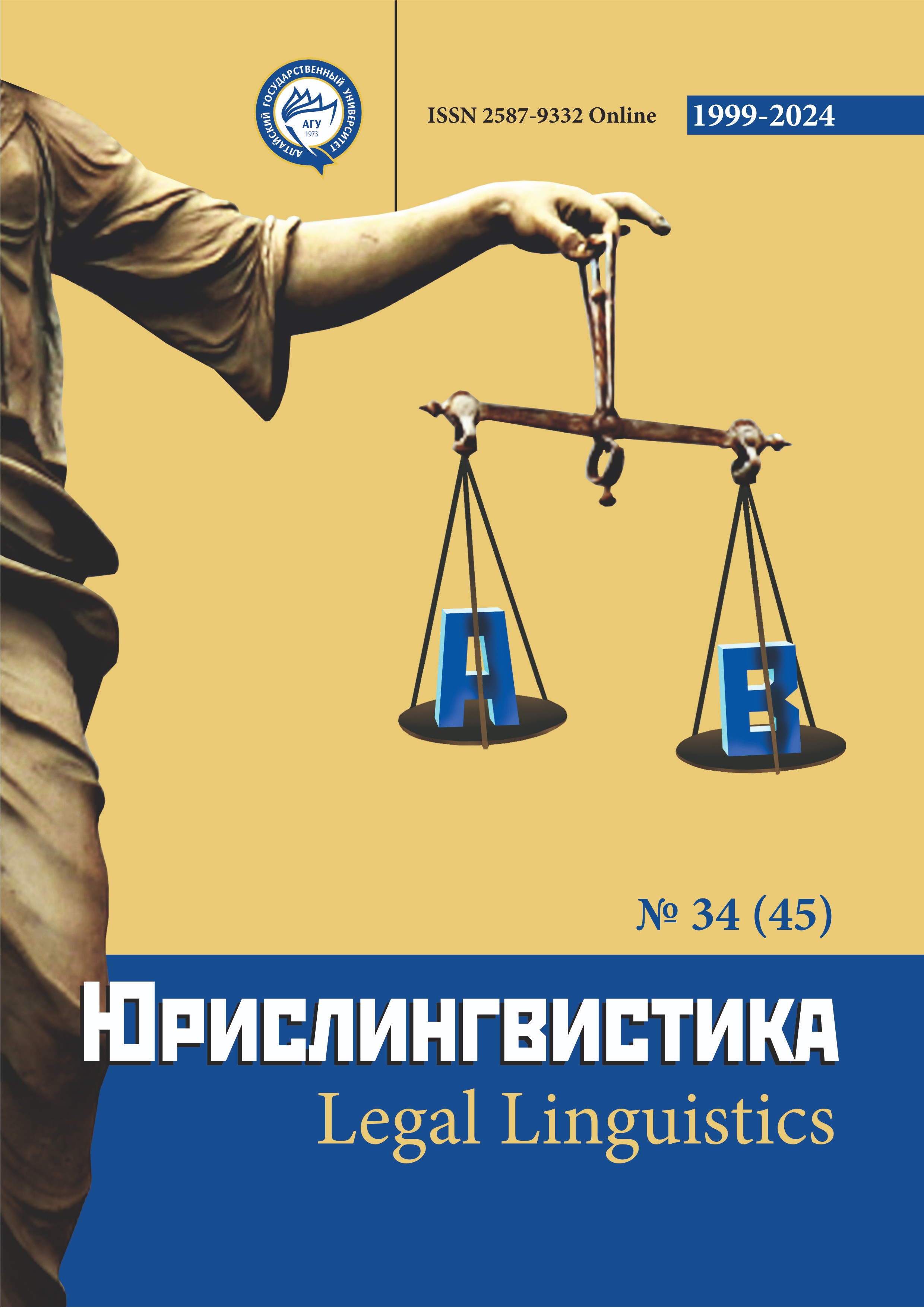Interaction of Language and Law as one of the Aspects of Legal Technique
УДК 340.111.57, ББК 67.0
Abstract
The article covers the study of the peculiarities of the interaction of the language and the law, based on the need to comply with the requirement for the clarity of the text of regulatory legal acts as one of the main rules of legal technique. The main features of the language of law in various periods of historical development are highlighted. It was established that in the pre-revolutionary period the language of law was characterized by professionalism and a high level of culture, but due to this, it was inaccessible to understanding by ordinary citizens. The Soviet period was marked by the slogan-like nature of the legal language, but at the same time by its brevity and thoroughness, as well as the functionality of the preamble as an element of a normative legal act. In addition, during this period, legal technique was actively studied as an independent branch of legal science, despite existing opinions that it is alien to the proletariat. The current stage of development of language and law is called recessionary. There is a significant increase in the number of regulatory legal acts designed to solve new problems, but which in fact complicate legal regulation due to contradictions with previously adopted acts and complex language structures. Among the noted positive aspects of the modern period is defense of the Russian language as a state-forming factor against excessive borrowing of foreign terms is. It is concluded that in each considered period of the development of the law and the language, positive and negative aspects can be identified, since the language of law reflects the characteristics of the socio-political situation. In accordance with the cyclical pattern of historical development, after a crisis there is always a rise, which needs to take into account the positive experience of those periods of development.
Downloads
Metrics
References
Бабаев В. К. Презумпции в советском праве. Горький, 1974.
Брауде И. Л. Очерки законодательной техники. М.,1958.
Власенко Н. А., Рахманина Т. Н., Рафалюк Е. Е. Теоретико-правовое наследие И. Л. Брауде / Журнал российского права. - 2010. - № 10. - С. 128 - 138.
Голунский С. А. О вероятности и достоверности в уголовном суде / Проблемы уголовной политики. М., 1937. - Кн. 4. - С. 56-63.
Гражданский кодекс РФ от 30 ноября 1994 г. № 51-ФЗ (Часть первая) / Собрание законодательства Российской Федерации. - 1994 г. - N 32. - ст. 3301.
Закон РФ «О залоге» от 29.05.1992 N 2872-1 (утратил силу) / Российская газета. - 1992 г. - N 129.
Иеринг Р. Юридическая техника. М., 2008.
Постановление Наркомюста РСФСР «Руководящие начала по уголовному праву Р.С.Ф.С.Р.» от 12.12.1919 (утратил силу) / СУ РСФСР. - 1919. - N 66. - ст. 590.
Сорокин В. В. Язык и право / Юрислингвистика. - 2020. - № 15 (26). - С. 5-7.
Тадевосян В. С. К вопросу об установлении материальной истины в советском процессе / Советское государство и право. - 1948. - № 6. - С. 65-72.
Томин В. А. Юридическая техника: учебное пособие. Санкт-Петербург, 2015.
Федеральный закон РФ «О внесении изменений в Федеральный закон «О государственном языке Российской Федерации» от 28 февраля 2023 г. № 52-ФЗ / Российская газета. - 2023 г. - N 45.
Copyright (c) 2024 Олеся Зацепина

This work is licensed under a Creative Commons Attribution 4.0 International License.
The authors, which are published in this journal, agree to the following conditions:
1. Authors retain the copyright to the work and transfer to the journal the right of the first publication along with the work, at the same time licensing it under the terms of the Creative Commons Attribution License, which allows others to distribute this work with the obligatory indication of the authorship of this work and a link to the original publication in this journal .
2. The authors retain the right to enter into separate, additional contractual agreements for the non-exclusive distribution of the version of the work published by this journal (for example, to place it in the university depository or to publish it in a book), with reference to the original publication in this journal.
3. Authors are allowed to post their work on the Internet (for example, in a university repository or on their personal website) before and during the review process of this journal, as this may lead to a productive discussion, as well as more links to this published work (See The Effect of Open Access).











